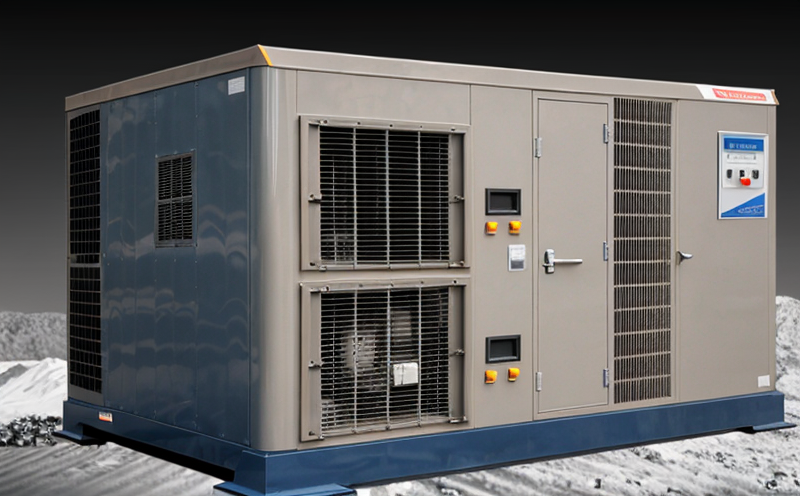JEDEC JESD22-A145 Moisture Induced Failure with Thermal Stress Testing
The JEDEC JESD22-A145 standard defines a method for testing the susceptibility of integrated circuits (ICs) to moisture-induced failure due to thermal stress. This test is crucial in ensuring that microchips and semiconductors are durable under real-world conditions, particularly in environments where humidity can lead to degradation or outright failure.
The JESD22-A145 testing protocol involves exposing samples to controlled levels of moisture followed by rapid temperature cycling. The primary goal is to identify any potential weaknesses that could cause failures during the lifecycle of the device. This test is particularly important for industries where reliability and longevity are critical, such as automotive, aerospace, medical devices, and consumer electronics.
The testing process involves several key steps:
- Sample preparation: Ensuring that samples are clean and free from any contaminants that could affect the outcome of the test.
- Moisture exposure: Samples are exposed to a controlled environment with specific humidity levels for a predetermined period. This step simulates real-world conditions where moisture can penetrate the packaging.
- Thermal cycling: After moisture exposure, samples undergo rapid temperature changes between extreme cold and hot temperatures. This phase is designed to simulate operational stresses that the device will face in use.
- Data collection and analysis: Post-testing, the samples are inspected for any signs of failure or degradation. The results are compared against predefined criteria established by JESD22-A145.
The test is conducted using specialized equipment that allows precise control over environmental conditions, including temperature and humidity levels. The testing apparatus typically includes a chamber capable of maintaining controlled atmospheres and a mechanism for rapid temperature cycling.
Understanding the acceptance criteria is essential to interpreting the results accurately:
- Visual inspection: Any visible signs of failure or degradation are noted.
- Electrical performance: The electrical characteristics of the sample before and after testing are compared to determine any changes that could indicate a failure.
The JESD22-A145 test is vital for ensuring that semiconductors meet stringent reliability standards. By identifying potential issues early in the development process, manufacturers can improve product quality, reduce warranty costs, and enhance customer satisfaction. The test also helps in optimizing design parameters to better withstand environmental stresses.
Given the critical nature of this testing, it is imperative to use laboratories that are equipped with state-of-the-art facilities and experienced personnel who adhere strictly to international standards like JESD22-A145. This ensures that the results are accurate and reliable, providing a clear picture of the device's robustness against moisture-induced failure.
Why Choose This Test
The JEDEC JESD22-A145 Moisture Induced Failure with Thermal Stress Testing is an indispensable tool for quality managers and R&D engineers who need to ensure the reliability of their products. By subjecting microchips and semiconductors to controlled environmental stresses, this test helps in identifying any potential weaknesses that could lead to failures under real-world conditions.
Here are some reasons why choosing this test is beneficial:
- Enhanced Reliability: Ensures that the devices can withstand moisture and temperature variations without failing.
- Cost Savings: Identifies issues early in the development process, reducing the need for costly redesigns later on.
- Better Product Quality: By adhering to strict standards, manufacturers can produce higher quality products that meet customer expectations.
- Improved Customer Satisfaction: Ensures that customers receive reliable and durable products, leading to increased trust and loyalty.
The test is particularly beneficial for industries where the reliability of microchips and semiconductors is paramount. It helps in optimizing design parameters to better withstand environmental stresses, ultimately leading to more robust and dependable products.
Customer Impact and Satisfaction
The impact of JEDEC JESD22-A145 testing on customers and their satisfaction is profound. By ensuring that microchips and semiconductors can withstand moisture-induced failures, this test significantly enhances the reliability and longevity of products.
- Increased Product Lifespan: Products tested using JESD22-A145 are more likely to last longer without failing due to environmental stresses.
- Better Customer Trust: Knowing that their devices meet strict reliability standards, customers have greater trust in the product's performance and durability.
- Enhanced Reputation: Manufacturers who adhere to this standard build a reputation for producing high-quality, reliable products, which can lead to increased market share.
The test also contributes to better customer satisfaction by ensuring that devices perform consistently across various environments. This consistency is crucial in industries where reliability is critical, such as automotive and aerospace sectors.
Use Cases and Application Examples
| Industry Sector | Application Example | Testing Outcome |
|---|---|---|
| Aerospace & Defense | Testing of avionics microchips for space and ground-based systems. | Demonstration that the chips can withstand harsh environmental conditions without failure. |
| Automotive Electronics | Verification of automotive processors against moisture and temperature variations in different climates. | Evidence that the devices maintain their performance standards under real-world stress. |
| Medical Devices | Assessment of medical microcontrollers for use in implantable devices. | Confirmation that the devices can operate reliably despite environmental stresses. |
| Consumer Electronics | Testing of smartphone processors for durability under varying humidity levels. | Proof that the chips maintain their performance and integrity over time. |
The JEDEC JESD22-A145 test is widely used across various industries to ensure that microchips and semiconductors meet stringent reliability standards. The testing outcomes provide valuable insights into the robustness of the devices, helping manufacturers make informed decisions about design improvements.
For instance, in aerospace applications, this test ensures that avionics microchips can withstand extreme temperatures and moisture levels encountered during space missions or ground operations. In automotive electronics, it verifies that processors operate reliably under varying environmental conditions. Similarly, in medical devices, the test assesses the durability of microcontrollers for implantable devices. For consumer electronics like smartphones, it ensures that processors maintain their performance over time.





